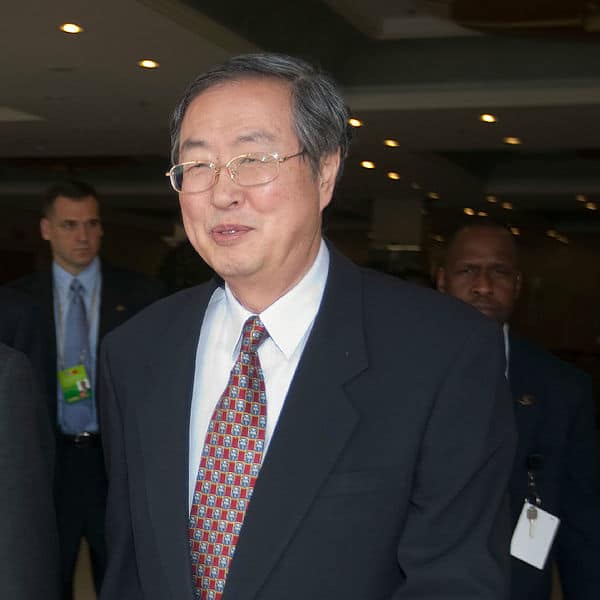The recent warning made by China’s central bank chief about the possibility of a Minksy Moment crash may have just nothing more than a form of brute subterfuge designed to ensure that his successor maintains a cautious, moderate stance when it comes to monetary policy.
At the sidelines of the 19th National Congress of the Chinese Communist Party in October, People’s Bank of China governor Zhou Xiaochuan warned that China could be on the brink of “Minsky Moment-“style economic collapse.
Zhou said China could be vulnerable to a collapse in the asset bubbles created by surging credit expansion during the past decade since the Great Financial Crisis.
“If there are too many pro-cyclical factors in the economy, cyclical fluctuations are magnified and there is excessive optimism during the period, accumulating contradictions that could lead to the so-called Minsky Moment,” said Zhou. “We should focus on preventing a dramatic adjustment.”
While Zhou’s shock warning grabbed headlines around the world, South China Morning Post columnist Tom Holland contends that the central banker’s remarks were a form of disingenuous hyperbole, specifically designed to keep his successor on track after he retires next year.
Zhou’s Minsky Moment comments added to the growing chorus of concerns voiced by leading economic observers about the exorbitant debt levels accumulated by China since the turn of the decade, and the potential for them to inflate collapse-prone asset price bubbles.
Key indicators would certainly appear to vindicate these concerns, with China’s debt rising from around 150% of GDP to approximately 260% today, and much of the borrowing done via the country’s immense shadow banking sector likely channelled towards speculative investment in the real-estate market.
According to Holland, however, China is unlikely to meet with economic disaster any time soon, and Zhou’s warning was simply an opportune subterfuge.
Holland points out that the heavy-handed deleveraging campaign launched earlier this year has proved effective a containing China’s debt growth, which is no longer expanding at all compared to GDP.
In addition, the composition of Chinese debt is rapidly shifting, with a decline in the share held of state-owned enterprises (SOE) that have traditionally accounted for the preponderance of borrowing from China’s bank-dominated finance sector.
Beijing has placed heavy emphasis on dialling down the debt levels of China’s SOE’s, referring to them as the “priority of priorities” when it comes to deleveraging, and making extensive recourse to debt-equity swaps to shore up their capital structures.
Chinese household debt has surged in sharp contrast, with around 60% of home purchases financed using mortgages in the first half of 2017, as compared to only 15% in 2012.
Despite this sudden increase, Holland points out that household debt in China remains comparatively modest at around 45% of GDP, as compared to 80% in the US following nearly a decade of deleveraging.
China remains an emerging economy which is still catching up to OECD-levels of development, which means the ongoing growth in household credit may simply be part of the financial system’s maturation, as opposed fuel for a speculative frenzy.
Low interest rates as well as rising incomes also mean that Chinese households should experience few problems when it comes to servicing their debt obligations.
If China is at little risk of a Minsky-style collapse, its begs the question of why Zhou Xiaochuan decided to break the “cardinal rule of investment banking,” by speaking in such alarmist terms about the economy, at the most important event on the Chinese Communist Party’s calendar no less.
According to Holland the reason is “not hard to guess” – Zhou is simply seeking to preserve the continuity and prudence of central bank policy in the lead up to his retirement next year, in order to forestall the possibility of any missteps on the part of his successor that would be injurious to his legacy.
“[Zhou] wants to secure his legacy,” writes Holland. “That means he needs to ensure his successor is on guard against potential dangers that, should they be allowed to blow up over the next few years, could subsequently be blamed on negligent regulation during Zhou’s time on the job.
“By talking of a possible Minsky moment now, Zhou is effectively dictating that the main aim of his successor must be to prevent any such catastrophe in future.”



